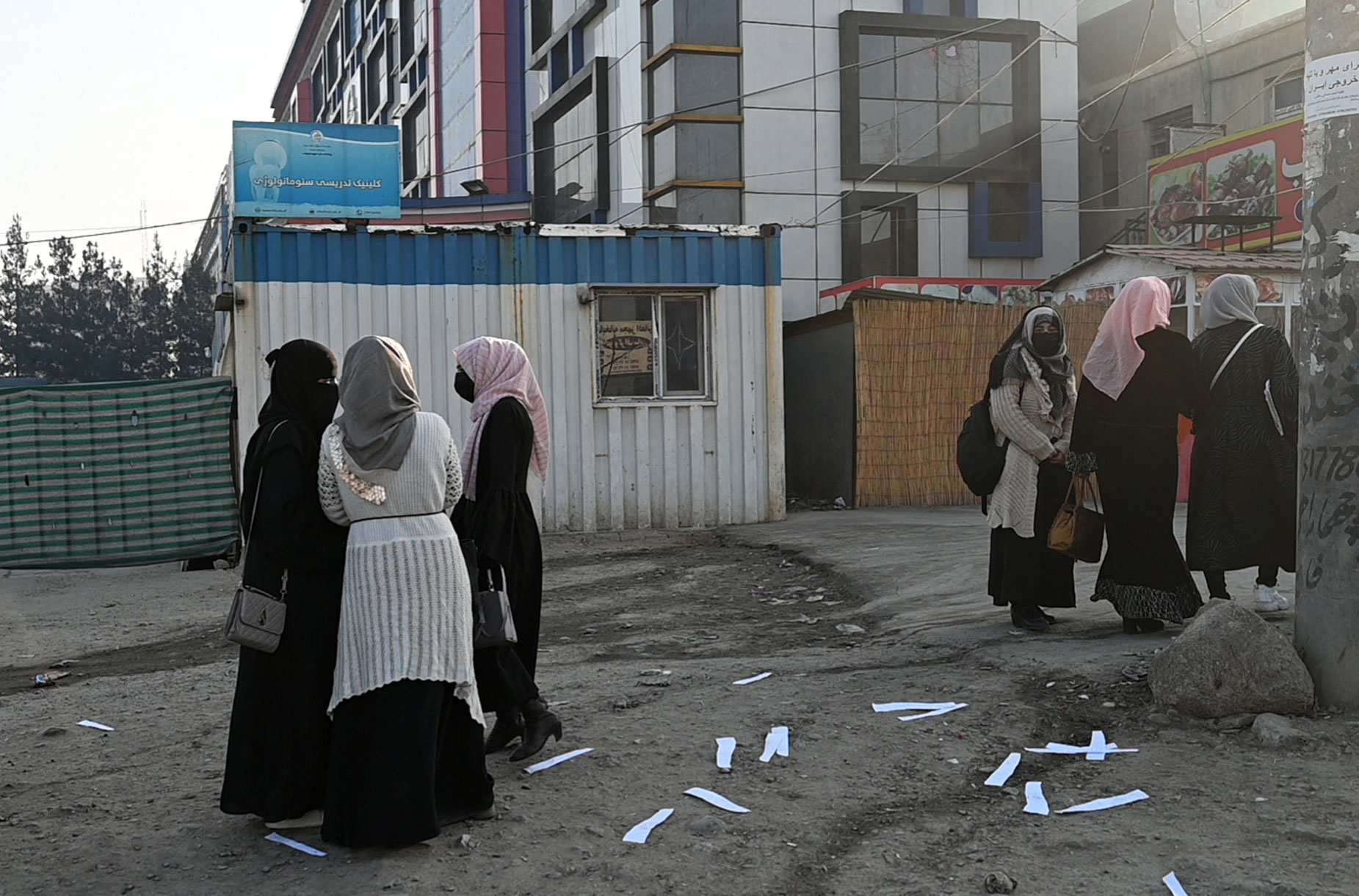My name is Sediqa Farahsa Merzayee. I am a citizen of Afghanistan and an elementary school teacher. I started my career 10 years ago, when I was 18 years old, teaching children and women who were illiterate.
Before we had the Taliban regime, my main concern was how to be a good teacher, how to properly serve my students.
After the Afghan government fell in August 2021, I wondered if I would be able to teach at all. When a suicide bomber attacked the Kaaj educational center a few months ago, killing dozens of girls, I came to my classroom and hugged my students tightly. They had tears in their eyes. I couldn’t stop wondering: “Where will these girls, my daughters, be in 10 years from now? Under the earth? Or thriving, becoming teachers themselves or students at university?”
When the Taliban took over, many Afghans lost hope, both for the country and its people. But if you’re a teacher, it is impossible to accept the death of hope. Our job may not be easy — we have small salaries, and it is hard to find enough books and materials — but when you see these 7- and 8-year-old girls coming to class, lugging their notepads in old satchels, with no more than 5 afghani (5 cents) in their small hands, you see little angels before you. They are so poor yet so eager to learn. All their love is focused on their teacher. It is humbling.
My first days were difficult because I had no experience with children. I consulted books on child psychology and read lots of teaching manuals. I wanted to be the very best for them. I’ll never forget the first time I saw them write out the letters of the Dari alphabet, their lovely hands tightly grasping the pen between their thin fingers. Later, those same girls would write whole sentences and letters to me, “My dear teacher, you are always in our heart,” they wrote. “Dear teacher, I love you.”
For a teacher to read these words is to experience a world filled with hope and beauty.
Over my years, I have seen great joy and great sorrow in the lives of my students. In my first year of teaching, I had only three students, illiterate children from the same family. There were two brothers and one sister. They were afraid of me, of everything, of the world. But they still came to class each day, crossing the city to come to our school. They are now grown-up, and I even attended their weddings. In those early days, I really wanted to teach children who had been injured and displaced by the war. I even went around the makeshift camps on the edge of Kabul, looking for girls who wanted to learn, going from tent to tent to form my classes. Eventually, I taught their mothers how to read and write, too. I’ve had many different types of students. Sometimes they came from the upper class, others were orphans who worked in the morning before coming to afternoon science classes. I worked with children from Kunduz who were internally displaced by the war. Each child has their own unique way of acting, loving, behaving. Teaching urban children who had homes and the support of their families was of course very different from rural children who had lost family in the war and sought the relative safety of Kabul.
The first blow my students suffered under Taliban rule was immediate: Girls were separated from boys in the classrooms. We had only just reorganized when another restriction was imposed, ordering all women in public to cover their faces, including teachers as we came to work. And then came another: Our young students were forced to switch their white headscarves for black ones. Instead of light, there was darkness, mirroring the sad days that now filled our lives.
A few months ago, in September, my colleagues and I held a meeting to plan our winter syllabus and schedule like we usually do. As we were talking, some members of the Taliban barged into our school, where they told us that things were changing. Soon girls would not be allowed to study, even first graders. When I heard this, I burst into tears. Surely this won’t happen, I thought. How could it?
But it has, and I now feel I have watched hope vanish before my very eyes. With all my students, all my girls, banned from school, I worry about their dreams and am fearful for their futures. I hope, more than anything, that I will be able to return to my classroom, to teach them again, to hug them and tell them it will be all right.
Editor’s Note: There has been news in the media about the Taliban banning education for all girls, including first graders. This appears to be inaccurate. Girls from grade one to grade six are still allowed to go to school. The confusion in the media arose from a memo issued by the Taliban, which both formalized an existing policy and extended it to religious schools known as madrassas: Girls after grade six are not allowed to go to school. This policy was already in effect, but not in madrassas. The policy now applies to both formal education, run by the Ministry of Education, and to religious/madrassa schools.



